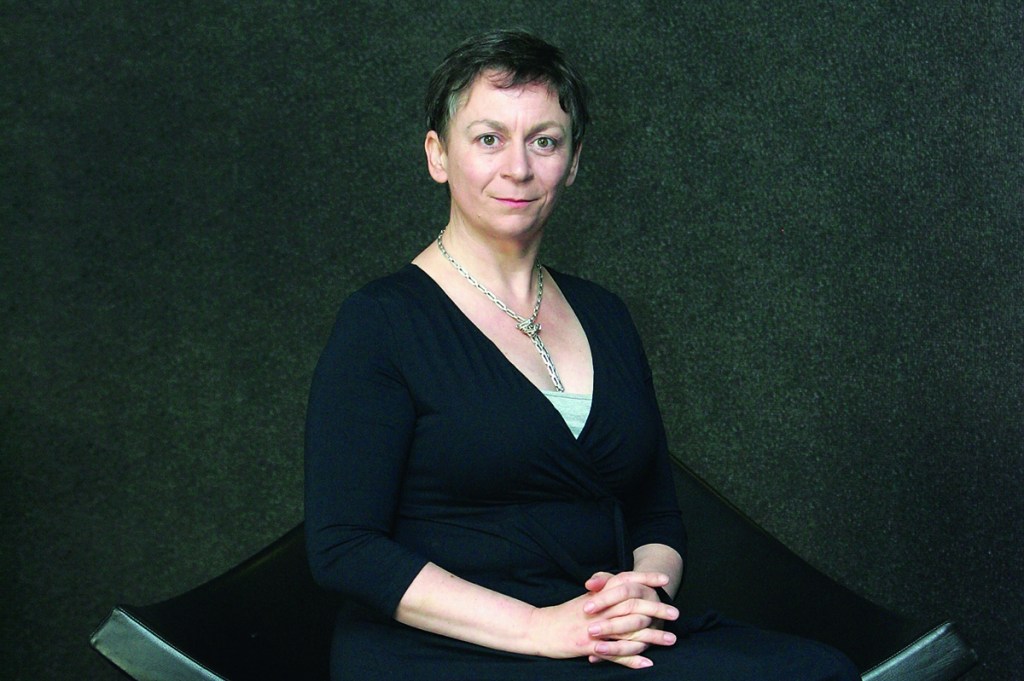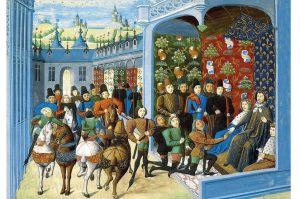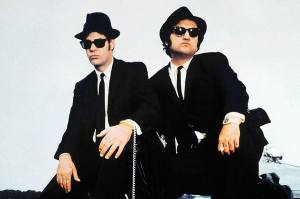This article is in The Spectator’s March 2020 US edition. Subscribe here.Actress
is the novel Anne Enright has been rehearsing for since her first collection of stories, The Portable Virgin (1991). It is a jewel of a book, a dark emerald to set in her fictional tiara alongside The Gathering (2007), which won the Man Booker Prize, and The Green Road (2015). Its brilliance is multifaceted, complex but completely lucid. Like its predecessors, it is a portrait of a matriarch.
Norah, the novelist daughter of an invented Irish theater legend, Katherine O’Dell, wants to tell the story of her mother’s life as she approaches her own 59th birthday. She is acutely aware that she is about to have one birthday more than her mother managed: ‘I would spin beyond her, out into unchartered space. I was about to become older than my own mother.’
No one is accidentally named Norah in a novel set in Dublin. Norah Barnacle, James Joyce’s wife and muse, is embedded forever in the literary life of the city. Enright’s Norah is a writer in her own right. She wields her pen reflectively, sometimes defensively, and only feels entirely safe on the page. As she reconstructs Katherine’s life from memories and old photographs, she describes her own sexual awakening and love affairs, evoking two generations of Irish women’s experiences.
Norah knows that her mother was not really Irish. She was born Katherine FitzMaurice in London, her parents ‘strolling players’. In 1939, the family moved to Dublin to wait out the war. Katherine made it to Broadway in 1948, dyed her hair auburn, wore only green clothes and allowed an apostrophe to be inserted into her mother’s maiden name, Odell. In America, Katherine became an iconic Irish actress: ‘You can be anything you want to be.’
Nothing is known for certain of Norah’s father, who is deemed unworthy even of a name. Norah remembers her childhood in her mother’s glamorous milieu back in Dublin’s Dartmouth Square. There were fans and sycophants. There was a lecturer in English literature, Duggan the Fucker, who hated fiction of all kinds. ‘And this would be fine if he lived in any other town, but in Dublin every fool had a novel on the go, so he was “a eunuch in the great harem of Irish literature”.’ There was a priest, Father Des, her mother’s spiritual advisor who doubled as her psychoanalyst and her lover: ‘He looked like a pocket version of God. His smile was entirely benign, his hair prematurely white. He was the future of the liberal Catholic Church.’ And there was the local doctor, ‘an absolutely monosyllabic man who refused to consider any illness below the waist’.
In her early twenties, Norah has sex several times with Duggan the Fucker, then twice her age. She approaches the matter calmly. But this measured and reasonable approach is not shared by Katherine, who goes mad when she hears what has happened. She ends up on a psychiatric ward after shooting a movie director in the foot. Tangled up in her madness are her own experience of rape and her protective maternal instincts. Before the shooting, Katherine was writing a script about Dorcas Kelly, the Dublin madam accused of killing five male customers and burned at the stake in 1761. As mother and daughter pass the place where the stake once was, Katherine tells Norah that the prostitutes of Dublin rioted in Copper Alley when Kelly was executed: ‘Perhaps they thought, my mother said, that she should have killed five more.’
Norah addresses her portrait of her mother to two offstage characters. The first is her husband of many years, with whom she has had a long, happy sex life and two grown-up children: ‘We never made up our minds about anything, I think. Except each other.’ The second is a young doctoral student, hoping to write a book about Katherine as a great Irish feminist. As kindly as she can, Norah wants to tell the younger woman that her mother ‘was a great piece of anguish, madness and sorrow’ and not actually Irish at all.
Actress is a deeply humane, often darkly funny novel about the male exercise of power over attractive women. The grim subject matter is illuminated by Enright’s acute sensitivity to language. ‘“Beset” is a good word for a man who “went and got himself shot”, as Dublin likes to phrase these things — the way you could get yourself robbed or, especially, raped. We lived in the passive tense in those more difficult — certainly more tactful — times.’ The novel revisits a question first raised in The Gathering: ‘Who am I to touch, to handle and discard, the stuff of a mother’s love?’ Enright proves, once again, her genius at doing exactly that.
This article is in The Spectator’s March 2020 US edition. Subscribe here.


















